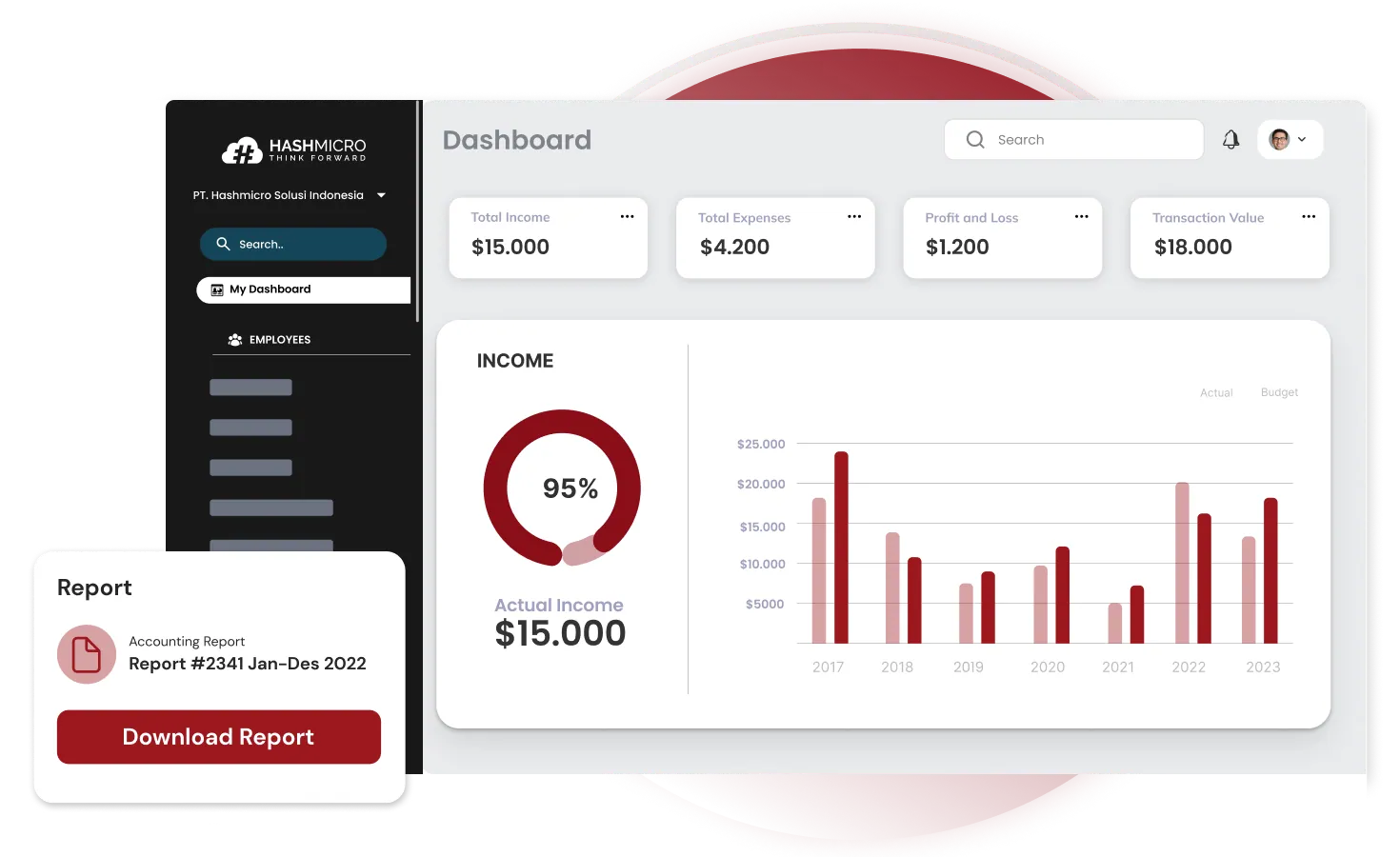Have you ever wondered if an accounting method could significantly impact your business in the global market?
In today’s global economy, inconsistencies in financial reporting across countries create challenges for global capital markets, foreign investments, and cross-border transactions. One key to addressing these issues is the “unification” of financial reports through accrual-based accounting.
In Singapore, we adhere to SFRS, which has mandated accrual-based accounting for all companies. This standard is crucial for investors, employees, lenders, and anyone who relies on reliable financial information, both within Singapore and internationally.
Therefore, if you want your business to thrive globally, adopting this accounting method is essential.
In this article, we will explore what accrual basis accounting is, why you should use it, its key features, and compare it to another method. We’ll also discuss how integrated accounting software can be a game-changer for your business.
Key Takeaways |
What is Accrual System of Accounting?
Accrual accounting is a method that records revenue when earned and expenses when incurred, regardless of cash flow. It clarifies the relationship between revenue and expenses, offering better insights into profitability and a more accurate representation of a company’s assets and liabilities.
Accrual accounting combines two key accounting principles: the matching principle and the revenue recognition principle. The matching principle ensures that expenses are recorded in the same period as the revenues they help generate. Meanwhile, the revenue recognition principle states that revenue should be recognized when it is earned, not necessarily when it is received.
For instance, if a company provides a service in December but receives payment in January, it records the revenue in December, reflecting when the service was delivered.
These transactions are documented in the accounting records and included in the financial statements for the relevant periods. Financial statements prepared on an accrual basis accounting for financial reporting provide information about past cash transactions, future cash obligations, and resources expected to generate future cash receipts.
Benefits of Accrual Accounting
Accrual system accounting offers several benefits to businesses in Singapore. Here’s a look at how it can be particularly advantageous in the local business market:
- It improves financial accuracy in your businesses. It recognizes revenue and expenses when they occur, giving a clearer picture for better financial management and planning.
- With this method, you can gain access to up-to-date financial information, enabling informed decision-making.
- It is mandatory to comply with Singapore Financial Reporting Standards (SFRS), especially for larger businesses. This avoids penalties and enhances credibility.
- Track receivables and payables with it to manage cash flow effectively. This is crucial in Singapore’s competitive business environment.
- It provides a clearer financial picture for Singaporean businesses seeking investors or loans. This is essential for demonstrating profitability and growth potential.
- Strategic tax planning is possible with this method. Businesses in Singapore can better align tax strategies with financial performance, potentially optimizing tax liabilities.
- Singapore, a global business hub, has many companies engaging in international trade. Accrual accounting aligns with global accounting standards, simplifying international transactions and financial reporting.
- The clear and detailed financial picture provided by this accounting method facilitates smoother due diligence processes and negotiations during mergers and acquisitions in Singapore’s dynamic business environment.
Key Features of Accrual-based Accounting

What distinguishes accrual accounting from other business accounting models is its key features and structured approach that help businesses effectively manage incoming and outgoing expenses, aligning seamlessly with other business processes. Let’s take a closer look at some of these main features.
- Simplifies Revenue and Payment Tracking: Unlike cash accounting, you don’t need to match specific payments to specific services when you record revenue as earned. This eliminates the hassle of remembering which invoices correspond to which payments, giving you a clear picture of your financial health at any given time.
- Matches Invoices to Payments: This method helps prevent issues with unpaid invoices by ensuring accurate record-keeping. It actively matches payments to corresponding invoices when they arrive. This creates a clear audit trail for your finances.
- Acknowledges Ongoing Payments: Large businesses often struggle with month-end account balancing due to unprocessed payments. It solves this by tracking unpaid services in the month they are invoiced, guaranteeing accurate closure of monthly accounts.
- Measures Expenses Against Specific Time Periods: As accrual accounting shows an immediate response from customers and clients, it is useful for measuring the impact of new campaigns or service changes. This allows businesses to associate these purchases with other actions occurring within the same period, recognizing their interrelations.
You can read other articles related to deferred tax liability to gain deeper insights into its calculation, examples, and best practices for management.
Comparison of Accrual-based Accounting with Another Method
Some people still need clarification about the difference between accrual accounting and other accounting methods. Here, we provide an explanation of this method and some commonly-confused accounting methods to brief you on why the accrual method is important for your business.
Cash Accounting vs. Accrual Accounting
Businesses have two main choices for recording financial transactions: accrual and cash accounting.
Accrual accounting recognizes revenue when it’s earned and expenses when they’re incurred, regardless of cash flow timing. This method provides a more comprehensive view of a company’s financial health and performance.
Cash accounting, on the other hand, only recognizes revenue when cash is received and expenses when cash is paid out. While simpler, it offers a less detailed snapshot of financial activity.
Imagine a consulting firm. Under accrual accounting, they record revenue upon delivering services, not when the payment arrives. Cash accounting, however, would only record revenue when the payment comes in.
Singaporean businesses generally favor accrual accounting. This is because it aligns with SFRS and provides a more accurate and timely financial picture. This is crucial for compliance, strategic planning, and attracting investment.
The table below summarizes the key differences between accrual and cash accounting methods.
| Aspect | Accrual Accounting | Cash Accounting |
| Revenue | Recorded when earned, regardless of when received. | Recorded when cash is received. |
| Expenses | Recorded when incurred, regardless of when paid. | Recorded when cash is paid. |
| Accuracy | Provides a more accurate financial picture. | Simpler but less accurate representation of financial health. |
| Complexity | More complex to implement and maintain. | Easier to implement and maintain. |
Deferral Accounting vs. Accrual Accounting
Accrual accounting and deferral accounting are two methods that deal with the timing of revenue and expense recognition, but they serve different purposes.
Accrual accounting records revenues and expenses when they are earned or incurred, regardless of when the cash is actually received or paid, providing a complete and timely financial picture.
On the other hand, deferral accounting involves postponing the recognition of revenues and expenses until a later date, often used to match revenues with related expenses.
For example, a Singaporean software company that signs a $50,000 contract on June 1st for six months of service would, under accrual accounting, recognize $8,333.33 as accrued revenue each month from June to November as the work is completed. Additionally, the company would also record $8,333.33 as an accrued expense each month to reflect the cost of providing the service.
In contrast, deferral accounting would record the $50,000 as deferred revenue initially and then recognize $8,333.33 as earned revenue each month, aligning revenue with service delivery. This approach helps businesses comply with Singapore Financial Reporting Standards (SFRS) and manage financial statements accurately.
For Singaporean businesses, understanding both methods is crucial as accrual accounting aligns with Singapore Financial Reporting Standards (SFRS) and ensures compliance and accurate financial reporting, while deferral accounting can be a strategic tool for managing financial statements and tax planning.
The key difference between the accrual and deferral accounting methods is summarized in the table below:
| Aspect | Accrual Accounting | Deferral Accounting |
| Revenue Recognition | When earned, regardless of when cash is received | Postponed until a later date to match related expenses |
| Expense Recognition | When incurred, regardless of when cash is paid | Postponed until a later date to match related revenues |
| Financial Picture | Timely and complete | Matches revenues and expenses to the period they occur |
| Compliance | Aligns with SFRS | Can be used strategically for financial management |
Now that we’ve comprehensively explored the power of this accounting method and its potential to boost your company’s financial health, let’s delve into how you can seamlessly transform your business finance management to this more accurate and insightful method.
Streamlining Your Transition to Accrual-Based Accounting with Hashmicro

Transitioning to accrual accounting can feel overwhelming, but with careful planning and the right tools, it can be smooth. Assess your current practices and seek professional advice if needed.
Choosing the right and best accounting software? HashMicro offers a powerful, adaptable solution tailored to your needs. Our AI-powered financial management system automates accounting and streamlines the process. Integrated with international and localized standards, it’s ideal for any field.
Imagine the peace of mind using the same trusted system as Danone, McDonald’s, and Hino. HashMicro’s suite of features empowers you to control your finances like never before, providing deep insights and maximum efficiency.
Key features include:
- Multi-level Analytical Report: Provides deep financial reports that support data analysis and strategic decision-making.
- 3-way Matching: Automates PO, invoice, and goods receipt matching to prevent fraud, reduce errors, and ensure transaction integration.
- Financial Ratio: Provides financial ratios for performance analysis, aiding in more accurate decision-making and opportunity identification.
- Bank Integration & Auto Reconciliation: Facilitates automation to reduce errors and save time.
Conclusion
Adopting an accrual accounting system is crucial for businesses looking to succeed globally. It ensures transparency, builds investor confidence, and facilitates smoother cross-border operations. By recognizing revenues and expenses when they occur, businesses can better predict future cash flows and profitability, ultimately enhancing financial management and decision-making. Moreover, The SFRS also mandated the use of it for Singaporean businesses to ensure clarity and comparability in financial statements.
HashMicro’s Accounting Software offers an ideal solution for implementing accrual accounting. As an ERP-based system, it provides integrated financial management, accurate financial reporting, and compliance with international standards. The software is highly customizable to meet specific business needs and offers real-time data access and robust security features. By using HashMicro’s Accounting Software, businesses can streamline their financial processes, improve accuracy, and focus on strategic growth.
Learn more by clicking the image below or schedule a free demo now to experience the transformational power it brings to you!
Warning: Undefined array key "med" in /home/hashmicr/public_html/blog/wp-content/plugins/insert-headers-and-footers/includes/class-wpcode-snippet-execute.php(419) : eval()'d code on line 281

FAQ About Accrual Accounting
-
Why do businesses prefer accrual accounting?
Because it improves financial accuracy by recording transactions when they happen, not when cash is exchanged. This ensures you account for credit sales and upcoming invoices promptly.
-
When should a company use accrual accounting?
The IRS requires businesses exceeding $25 million in revenue to switch to the more complex accrual accounting system. This change can be expensive and time-consuming, especially during periods of rapid growth. Additionally, securing funding can be more challenging for businesses using cash-based accounting.
-
Can you use both cash and accrual accounting?
The modified cash basis is an accounting method that merges aspects of both cash and accrual accounting. This approach aims to leverage the advantages of each system by recording sales and expenses related to long-term assets using the accrual basis while handling short-term assets on a cash basis.
-
Should small businesses use cash or accrual accounting?
This method offers a more complete understanding of your business’s financial health by considering both future income and future expenses, but it can make it more difficult to track your current cash on hand.































